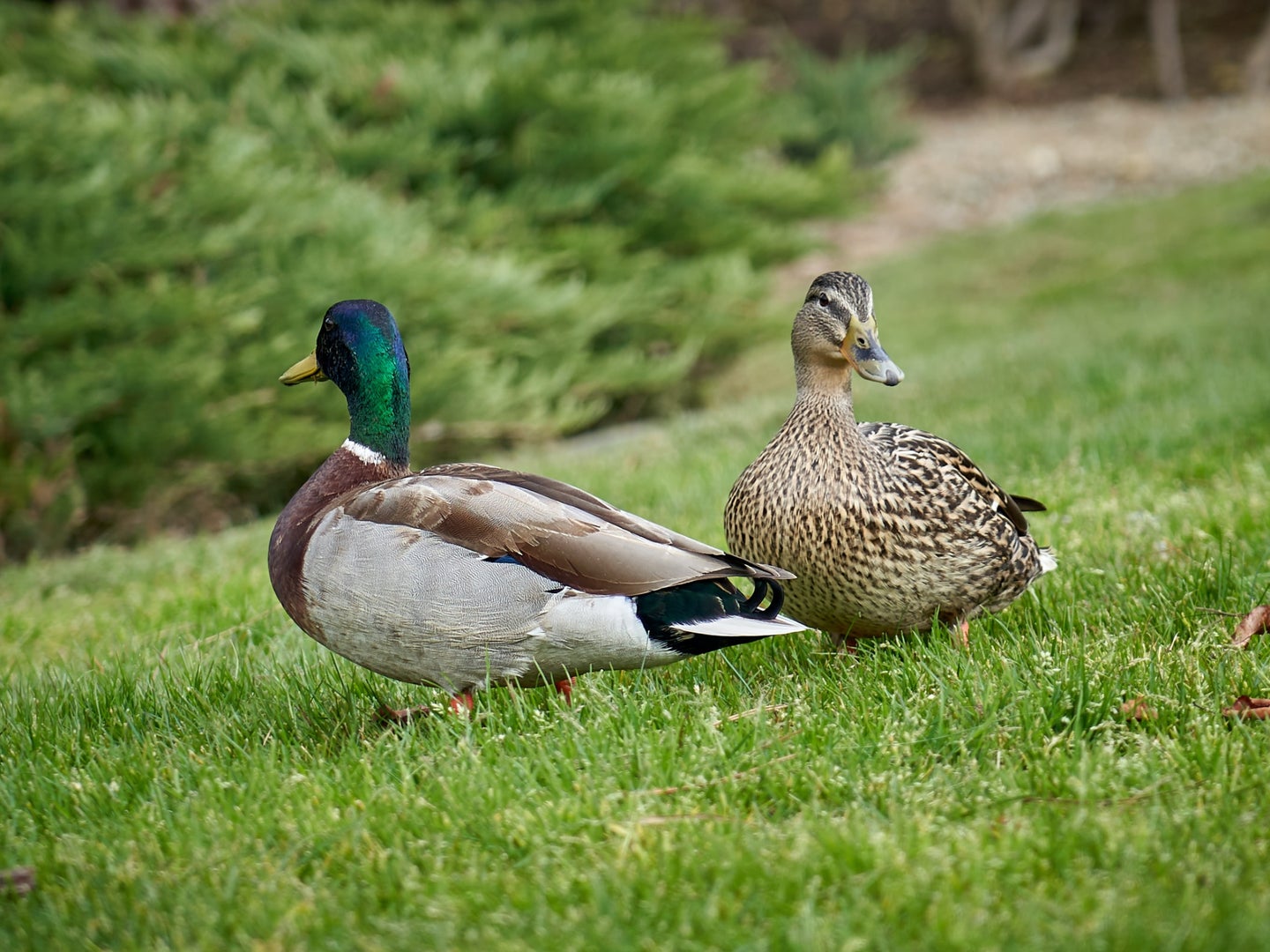Don’t feed ducks bread. Here’s what to give them instead.
Don't give crackers to the quackers.

We may earn revenue from the products available on this page and participate in affiliate programs. Learn more ›
Countless movies, TV shows, and even comics depict the age-old tradition of feeding bread products to ducks at the park. But don’t be fooled: this stereotype is actually an unhealthy practice that could lead to malnourishment and other health problems for these epicurean waterfowl.
But if you’re an animal lover determined to feed your local park’s residents, there are several healthy alternatives. Before you go stock up on snacks, though, always make sure you’re allowed to feed the critters in question—some areas’ rules are more lenient than others.
What to feed ducks (and other waterfowl)
The best advice we can give about feeding ducks (or other types of park fowl like swans and geese) is to imitate the types of food they naturally eat in the ponds and fields they call home. This means vegetables and nutritious grains work well, while processed “human” foods do not. Even though bread is typically made from grains, the breadmaking process renders it very filling with a relatively low amount of nutrients, two factors that can lead to malnourished ducks. Instead, try to stick with snacks that haven’t been highly processed.
For vegetables, the most important consideration is making sure that the bits and pieces you offer are small enough for waterfowl to handle. Ducks and their relatives aren’t great at chewing—while their bills help break down food, they don’t have teeth, at least in the traditional sense. Cut salad greens, vegetable peels, nuts, grapes, and other produce into small pieces before you toss them to these birds.
[Related: Why do ducks have orange feet?]
A bag of frozen mixed peas, corn niblets, and carrot pieces is one of the best options for waterfowl: these veggies are nutritious, affordable, and small enough for ducks to eat whole. Grains like oats, rice, and seeds make good waterfowl chow for the same reason. Even better, many of these little morsels will float on your local pond, keeping them easily accessible to ducks. Big chunks of food that sink to the bottom aren’t as useful.
If you’re looking to get fancy, you can also drop a couple more dollars on a bag of specially formulated waterfowl food. These pellets, available online or at your local pet store, are typically fed to pet birds and farm animals. These bite-size bits may not float on water, though, so test a few handfuls near the water’s edge before you start a feeding frenzy. This designer food may be best served up on the banks.
Other tips for feeding ducks
No matter how eager they are for a human-provided snack, your local park’s resident fowl are almost certainly not going to go hungry without you. Most ducks are perfectly capable of foraging for insects, plant life, and other nutrition sources on their own. That means you don’t need to feel bad if some of them miss out on the feast. In fact, overfeeding waterfowl can cause a host of problems, from teaching them to rely on human handouts to throwing off their natural nutritional balance. When in doubt, it’s better to stop feeding the birds sooner than you’d like than it is to feed them too much.
If you suspect a particular duck, goose, or swan may be unable to feed itself after you leave, it’s time to call in professional help. Waterfowl that live in parks are susceptible to a host of dangers from the human world, ranging from vehicle strikes to lead poisoning. Feeding them may be a temporary kindness, but it’s not a sustainable solution. If you see a bird having difficulty moving around or visibly in distress, contact your local wildlife specialists right away.
What to leave at home
If you grew up feeding bread to ducks at the park, don’t worry—it didn’t kill them. Bread is a lot like candy: it tastes good and provides some short-term energy, but it doesn’t contain many nutrients and too much of it can lead to poor health. It’s best to avoid these other food groups, too, as some are not safe to feed ducks and other waterfowl:
- Bread products like stale donuts, crackers, and breadcrumbs—these simply aren’t healthy.
- Any dairy products like cheese cubes or ice cream—ducks cannot digest these properly.
- Any plants or foods from the nightshade family—this includes eggplants, peppers, potatoes, tomatoes, and some types of flowers and foliage. Parts of these plants can be highly toxic to ducks.
- Salty or sugary snacks—stay away from all junk food and highly processed foods.
- Citrus fruits or spinach—these foods can hinder calcium absorption in ducks and may affect the health of their eggs.
- Any spoiled foods—mold can be poisonous and may also damage the surrounding environment.
- Any food packaging or non-edible items—litter not only ruins the appearance of your park, but it can also harm the animals who call it home. Be sure to properly dispose of everything you bring with you to keep your feathered friends safe and happy.
This story has been updated. It was originally published on July 14, 2021.
